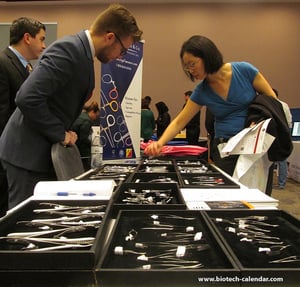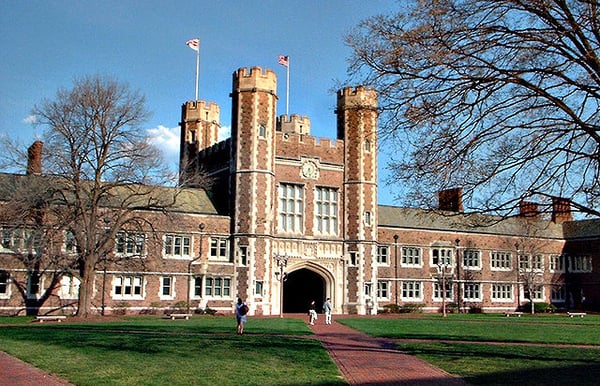The long-term impacts of substance abuse and other related social and environmental factors on the developing brain is not well understood. This gap in understanding is mostly a result of a lack of appropriate technology. However within the past decade, new technologies have become available that increase the safety and improve the method of neuroimaging, making this the right time in history to do a non-invasive study of the factors that have an effect on the development of the adolescent brain.
Read MoreRecent Posts
A promising relationship in technology research advancement has been made between Harvard University and Deerfield Management, a healthcare investment firm. The alliance was established to speed the development of research-to-treatments that can help improve quality of life, specifically in the health and medical sciences. Lab1636, a newly launched company, has been created as a result of the partnership with an initial investment of $100 million. Deerfield Management has chosen Harvard University as the collaborating associate, admiring their commitment to scientific discovery in the health sciences and the encouraging environment the university provides researchers.
Read MoreTags: Harvard University, Longwood Medical Center, BioResearch Product Faire Event, Research Funding, Harvard Medical School, NIH funding
New research at Washington University School of Medicine in St. Louis is aimed at investigating whether an already FDA-approved medication is effective in preventing hearing loss. The anti-seizure drug, zonisamide, is being evaluated. In the trial, the drug will be given to police officers and skull surgery patients before being exposed to loud noise. Zonisamide has previously been shown to lessen the damaging effects of hearing loss in animal trials and is typically given as a safe drug for epilepsy with minimal side effects. The project received a $10.5M grant from the Department of the Army and will be led by Washington University in collaboration with the University of Texas at Dallas, the University of Akron, Ohio, and Gateway Biotechnology in St. Louis.
Hearing damage, specifically hearing loss and tinnitus (ringing in the ears), is the most common disorder effecting members of the military. This research is intended to impact and improve quality of life for military members and their families.
This study is just one of more than 3,000 research projects underway at Washington University. Another includes the $18.5M National Institute of Health (NIH) funded Dominantly Inherited Alzheimer Network Trials Unit (DIAN-TU), a clinical trial testing multiple drugs to slow or block the development of Alzheimer’s disease in individuals inherently at risk. Additionally, Rodger and Paula Riney charitably donated another $15M for Alzheimer’s and Parkinson’s research, making Washington University a significant contributor in neurodegenerative and aging research along with other universities, such as the University of Southern California (see link: http://info.biotech-calendar.com/usc-recieves-13.98m-for-alzheimers-clinical-trial-consortium ).
Public Domain, https://commons.wikimedia.org/w/index.php?curid=505622
Washington University School of Medicine is one of the largest life science-focused recipients of NIH funding Nationwide. In the 2017 fiscal year, Washington University received the highest R&D funding it has in the course of the past decade, with $672M of the $754.4M total R&D being in Life Science expenditures.
Later this spring Biotechnology Calendar, Inc. looks forward to hosting its 20th annual BioResearch Product Faire™ event at Washington University. The event will take place Friday, April 19th, 2019.
If you are looking to sell lab research products to this marketplace, consider these facts:
- 2017 Total R&D: $754,462,000

- 2017 Life Science R&D Expenditures: $672,672,000
- Ranked 28th in the nation for Total R&D Expenditures
- 31 International research partnerships
- Over 3,000 research projects underway
Last year's show was a great success. We had a total of 338 attendees of which 120 were professors, post docs and purchasing agents. 57 attendees were lab managers with the remaining balance being both research associates and postgraduate students. This event is the perfect place to network with life science researchers and laboratory suppliers. We hope you will join us at the upcoming Washington University BioResearch Product Faire™ event.
Washington University BioResearch Product Faire™ event - April 19th, 2019
Read More
Tags: WashU, National Science Foundation, BioResearch Product Faire, WashU researchers, Department of the Army, Science News
The Alzheimer’s Clinical Trail Consortium (ACTC), led by research teams from the University of Southern California, San Diego, Harvard, and Mayo Clinic, was developed to accelerate research in Alzheimer’s and related neurodegenerative diseases. The University of Southern California has been awarded $13.98M from the National Institute on Aging (NIA), a branch of the National Institute of Health (NIH), who is leading the federal effort in this specialized field of research. The consortium’s objective is to find new and successful ways to treat and prevent this disorder, with support expected to total nearly $70 million over a five-year period. Additionally, another $19.8 million in funding has recently been awarded to the University of Southern California for other research projects related to Alzheimer’s disease and other related dementias.
Read MoreTags: USC Science, USC, Alzheimer' Research, Alzheimer's Disease, Keck School of Medicine, ACTC




